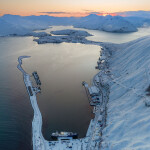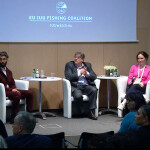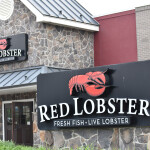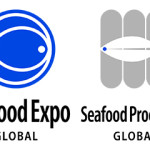Looking ahead to an always uncertain future, you can bet on two things: The need for farmed seafood products will grow, as will the demand for farmed seafood that is certified sustainable. There will most likely be a variety of certification programs for seafood buyers to choose from in the near future, but one group’s logo is already stamped on retail bags of frozen farmed shrimp: the Global Aquaculture Alliance and its Best Aquaculture Practices (BAP) standards.
I talked with Peter Redmond soon after he joined the St. Louis-based organization full time as VP of development, administration and communications. The former Wal-Mart seafood and deli executive is charged with taking the GAA’s responsible and sustainable aquaculture message to the world’s largest and most influential seafood buyers and expanding the scope of the BAP.
The BAP will have strong competition in the form of the World Wildlife Fund-GlobalGAP partnership’s Aquaculture Stewardship Council, which is scheduled to launch in 2011. But Redmond says the GAA’s momentum is building and BAP is already the preferred choice for many buyers. The following is a portion of our conversation — for the complete interview, check out the August issue of SeaFood Business, which is available now.
Wright: How did Wal-Mart’s seafood sourcing change in your 17 years there?
Redmond: Wal-Mart went a lot more from what I call transactional relationships to strategic relationships. Not just buying fish — we got to know who the suppliers were. When initiatives were in place, it became easier. Their current goals are, by 2011, all wild products will be [Marine Stewardship Council] certified and their farmed products will be BAP certified. Now, if you want to be a Wal-Mart supplier, you must have a stated goal.
How important are aquaculture certification standards?
They’re critical … for us as an industry to have something in place to make sure there are no knee-jerk reactions down the line. I like what the New England Aquarium says, which is to go out and adopt a certification program, but they don’t say which one. As General Patton once said, ‘I’ll take a good plan today versus a great plan tomorrow.’
Is competition with WWF and GlobalGAP good?
Yes. At the end of the day, it’s a business, even though this is the environment we’re talking about. In some way, a joint audit process would be good. [The WWF] is different in that nobody knows what [their standards] are going to look like. I was at one of their dialogues; the standards will be very good. The problem is they will be so good it will be a challenge to meet them.
Is there confusion about aquaculture certification in the marketplace?
I think with the announcement of the ASC, from a retailer’s point of view, they’re very confused — not as to, ‘What are we doing,’ but, ‘Why another set of standards? Why can’t you combine them?’
It’s also important to remember that [BAP] is a certification label and not an eco-label. We in the industry know and love the MSC, but the consumer really doesn’t [know them]. What we’re doing is more along the lines of corporate responsibility.





